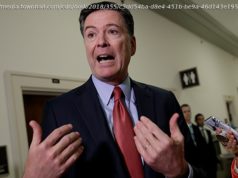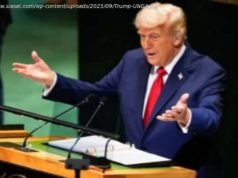Democrats and Republicans are bracing for a bitter legal fight over vote tallies in Florida that have thrown the state’s hotly contested Senate race into…
Democrats and Republicans are bracing for a bitter legal fight over vote tallies in Florida that have thrown the state’s hotly contested Senate race into chaos and made a recount a virtual inevitability.
The burgeoning legal fight between Sen. Bill Nelson (D) and Republican Gov. Rick Scott for the critical Senate race is shaping up to be one of the closest-watched election battles in Florida since the 2000 presidential election.
Scott holds a razor-thin lead after Tuesday’s election, making it likely the race will head to a hand recount.
On Friday, a judge in Palm Beach County handed the Republican governor a key legal win, ordering county election officials to turn over ballots deemed defective to a canvassing board for further review
Meanwhile, a judge in Broward County sided with Scott, ordering election officials there to release key information on how many ballots had been cast, how many had been counted and how many were left to count.
The ruling came a day after Scott filed two emergency lawsuits against Broward County Supervisor of Election Brenda Snipes and Palm Beach County Supervisor of Elections Susan Bucher, alleging that their offices have withheld crucial information about the vote-counting process.
Both counties tend to vote Democratic and were also at the heart of the 2000 vote dispute.
Scott also took the unusual step of asking the Florida Department of Law Enforcement (FDLE) to investigate election officials in Broward and Palm Beach, while accusing Snipes of “acting in bad faith” in a hastily called news conference on Thursday night.
Gretl Plessinger, a spokesperson for FDLE, told The Hill on Friday that the agency is working with the Florida Department of State on the matter, but has not launched an investigation, because it had not received any credible allegations of fraud.
That was followed on Friday by an emergency lawsuit against Florida Secretary of State Ken Detzner from the Nelson campaign, seeking a uniform set of standards by which local canvassing board evaluate mail-in and provisional ballots.
That lawsuit, filed in federal court in Tallahassee, also seeks to delay a crucial Saturday deadline for county election officials to submit unofficial vote tallies to the Florida Division of Elections until after the case is heard.
“This process is about one thing: making sure that every legal ballot is counted and protecting the right of every Floridian to participate in our democracy,” Nelson said in a statement on Friday afternoon. “No one should stand in the way of the people of our state exercising their right to vote and to have their voice heard.”
Meanwhile, the Republican National Committee is preparing to send operatives from across the country to Florida to observe a potential recount.
It’s not unusual for parties to dispatch personnel to states ahead of a recount. But the positioning illustrates how the GOP is racing to get ahead of a potentially pivotal fight.
“I think everyone feels a bit of déjà vu with having an election recount in Florida and looking at what’s happening in Broward,” said Barry Edwards, a political science professor at the University of Central Florida.
“I don’t think anyone in Florida wants to see an extended legal fight or this going to the Supreme Court,” he said.
Scott appeared on track to notch a key victory for Republicans on election night as initial vote totals showed him edging out Nelson by fewer than 57,000 votes.
But as county election officials tallied additional ballots on Wednesday and Thursday, Scott saw his already-slim lead diminish, throwing the race into recount territory.
As of Friday evening, fewer than 15,000 votes separated Nelson and Scott — a margin of 0.18 percentage points.
In Florida, a machine recount is triggered when two candidates are separated by 0.5 points or less, while a hand recount is required if the margin is 0.25 points or less.
The flurry of political posturing and legal actions underscores how intensely divided the country’s largest and most volatile battleground state remains along political, demographic and geographic lines.
The Florida Senate seat is seen as critical by Republicans, who are eager to further bolster their Senate majority after scoring key wins on Tuesday ahead of a less favorable election map in 2020.
A victory by Scott would also be viewed by Republicans as a sign of President Trump ’s political strength in a state that will be crucial to his reelection. Scott was among the first GOP governors to throw his support behind Trump’s White House bid in 2016, and a win over Nelson would give the president a key ally in the Senate.
Democratic-leaning South Florida has emerged as the battleground for the upcoming electoral skirmish, where county election officials in Broward and Palm Beach have come under intense scrutiny from partisans on both sides of the aisle.
Those counties are lagging behind the rest of the state in tallying up early votes and mail-in ballots, leaving the state of the Senate race between Nelson and Scott up in the air.
Both Snipes and Bucher have argued that Broward and Palm Beach have taken longer to report vote counts because they are large counties with more ballots to tally. Florida’s most populous county, Miami-Dade, has already finished reporting unofficial results.
Marc Elias, a prominent elections lawyer hired by Nelson’s campaign, raised concerns about an unusually large undervote in Broward.
He said on Friday that only a recount — both by machine and by hand — could determine if that undervote was due to poor ballot design or an issue with how vote-scanning machines were calibrated.
He also accused Scott of attempting to use his office to initiate a politically motivated law enforcement investigation with presenting evidence.
“It is not appropriate for the governor of any state to suggest that he is going to use the powers of the state as governor to interject his law enforcement authority to prevent the counting of ballots that have been lawfully cast,” Elias said. “I can assure you that we will take all of the necessary steps in court to make sure that Sen. Nelson’s interests are protected.”
Republicans raced to Scott’s defense, with Trump suggesting « electoral fraud » had taken place in Broward and Palm Beach counties to swing the election in Nelson’s favor.
Trump also accused Democrats of surreptitiously “finding” uncounted votes days after the election, declaring in one that he would send lawyers down to Florida to “expose the fraud.”
“Rick Scott was up by 50,000+ votes on Election Day, now they ‘found’ many votes and he is only up 15,000 votes,” Trump wrote on Twitter. “ ‘The Broward Effect.’ How come they never find Republican votes?”
As Floridians watched the legal fight over the Senate race unfold on Friday, the outcomes of other contests also appeared in flux.






